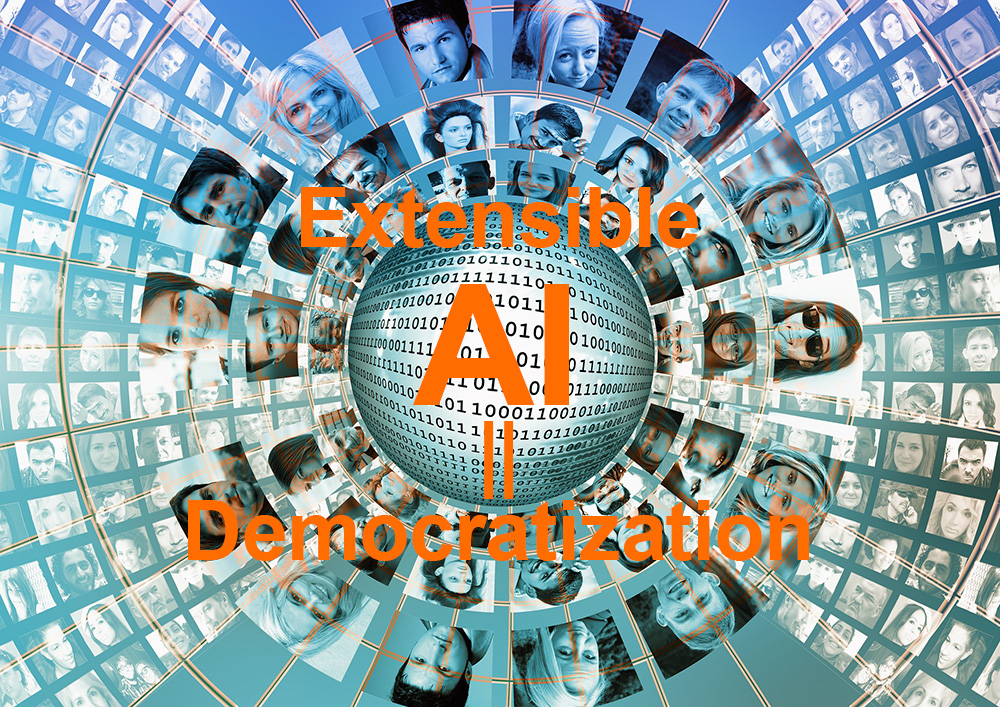Democratize your AI to Optimize your Customer Experience
Ever since 2020, there is an acceleration of the shift to digital commerce. Amongst B2B and B2C sales alike, buying and selling are increasingly operating with a digital-first mindset. Originally, this shift was a containment response to the pandemic. Years later, today, it has evolved into a strategic move to operate one’s business more efficiently, amongst further market volatility.
As more products become commoditized, customer experience (CX) will be the new battleground as brands attempt to differentiate themselves. However, making sure customer experience is distinct and unique in the online sphere is very challenging for B2B sellers.
Fundamentally, CX consists of two components and can be described by the equation:
CX = brand delivery − customer expectation
Whenever brands deliver more than their customers’ expectations, the CX will be positive. The reverse is also true, in that negative CX will be negative when brands deliver less than what their customers expect. While brands have become adept at optimizing the delivery of their product and services, customer expectation is a moving target that is much harder to quantify and measure.
This isn’t a problem in the pre-pandemic world, because brands can simply put experienced sales (or other highly trained staff) in front of their customers. This is because human agents are great at gauging customer expectations. However, when selling goes virtual, there isn’t a human sales rep to engage with customers and attend to their needs.
Enter AI
Here, the solution lies in artificial intelligence (AI). While digital interactions can get in the way of deep customer engagement, they are perfect for collecting massive amounts of data throughout digital channels. In turn, this data can be used to train AI to imitate human decisions under different contexts. With the majority of businesses now adopting a digital-first approach, personalization through AI is crucial to ensuring that this strategy thrives.
However, this opportunity comes with challenges. Businesses must assimilate a huge volume of data in order to understand the customer on the other end of the digital channels. Contrary to what leaders may assume, customers don’t expect to be “delighted” all the time. Instead, they do expect a consistent CX that is harmonized across all digital touchpoints of the brand. There is a multitude of factors that the seller must get right to ensure that the customer has a consistently good CX. Teams must deliver the right product, at the right price, at the right time, through the right channel, and under the right context. This requires a deep understanding of the invisible customer’s expectation across many digital channels and across huge time spans.
This is very challenging, because the customer expectation component of the CX equation is fluid and always evolving. Every intent signal, transaction data, customer interaction insight, real-time materials cost, market volatility, inflationary pressure, and even the slightest competitive moves can potentially change a customer’s expectation. AI is the only tool that enables sales teams to keep up with the dynamics of customer expectations in real time, especially when the customers are “invisible.” Therefore, to keep up with such a dynamic variable across digital channels, companies need to develop a new kind of corporate competency—the AI competency.
Adding AI to the core competency list
Today AI is a tool, adopted by forward-thinking and finger-on-the-pulse companies. However, in the near future, AI will become a new corporate competency that is crucial to the delivery of a consistent CX through every customer touchpoint. This core competency is the ability to garner real-time data from the market and execute dynamic decisions automatically. Leveraging Business AI that automates business decisions throughout the enterprise will certainly help companies develop this corporate competency.
While this new AI competency will be important for every business, there is also a huge obstacle when considering the cost, because AI systems can be very costly to maintain in-house. The teams, systems, and infrastructure required to build, test, manage, secure, and maintain proprietary AI systems can often turn the deployment of AI solutions into a full-blown R&D operation.
Furthermore, AI systems are often very sensitive to singular points of failure or individuals that may move on to new assignments. This makes the development, deployment, and especially the maintenance of an in-house AI solution impractical, even for companies that have already started on the AI adoption journey and have secured data science talent.
Making AI extensible
To address this challenge, companies need to have access to a tool that enables the democratization of AI. Today, businesses have no shortage of data, and many of them have even developed proprietary algorithms to address specific business needs. However, most of these businesses don’t have the capacity to turn their algorithms and data assets into scalable business solutions. An Extensible AI would allow businesses to plug in their algorithm, or use their own data to augment existing Business AI solutions.
Business AI that is extensible empowers organizations to use their data in real-time through their proprietary algorithms with plug-and-play ease. Through the learning and feedback loop in AI, they will be able to execute better decisions faster as a company, rather than just inside a tool in a point solution. This holistic approach enables organizations to operate like an AI system, which will enable them to adapt faster and better to the increasingly volatile business environment.
This extensibility will make proprietary Business AI more accessible to traditional enterprises, effectively democratizing AI for all businesses. This will ultimately blow open the playing field, enabling companies to compete more effectively, especially in areas where real-time decision and performance constancy are required under extremely dynamic business environments, such as CX.
Keeping up with the customer
Volatile and unpredictable customer expectations make delivering consistent CX very challenging for businesses, especially in a digital world devoid of human touch. This is further aggravated by the uncertain economic climate with rising inflation and other external pressures. To deliver a consistent CX, organizations are met with an even greater challenge of developing a corporate competency in AI where cost can be prohibitive.
However, this changes when one recognizes that Business AI doesn’t have to be inaccessible. The concept of Extensible AI can amplify a company’s initial investments in data science, lower the total cost of ownership, and democratize proprietary Business AI for all.
To truly thrive in today’s constantly changing environment, it is imperative that B2B businesses adopt and adapt to the new realities of digital. To do so effectively, Business AI will be a critical component required to create online engagement with consistent CX. Having reached the point of no return when it comes to digital selling, the adoption of AI is no longer a choice for brands, but a must-have in order to differentiate themselves among the infinitely larger and crowded market. Without such differentiated CX, brands would also be invisible to consumers. But with AI, brands will be able to stand out, sustain a competitive advantage, and outperform.
DISCLAIMER: The content of this article was first published by The AI Journal. Here is the latest revision and a current rendition of the raw manuscript submitted to the publisher. It differs slightly from the originally published version.



